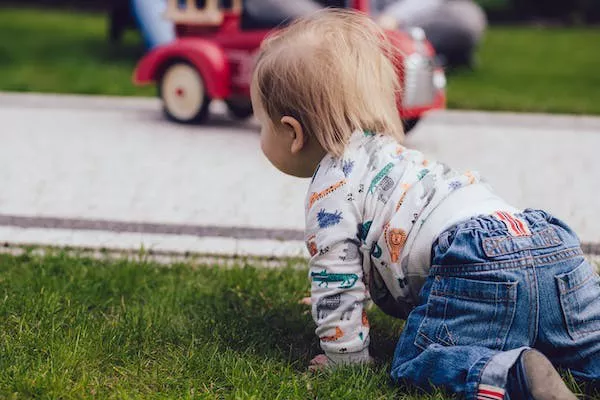Welcoming a newborn into your family is an exhilarating experience, and as a new parent, you want to provide the best care for your precious bundle of joy. One common question that arises is, “How often should I wash my newborn’s hair?” In this comprehensive guide, we’ll explore the nuances of newborn haircare, providing insights into frequency, products, and tips to keep your baby’s hair healthy and clean.
1. Understanding Newborn Hair Characteristics
Newborns enter the world with a variety of hair types, from a full head of luscious locks to just a soft downy fuzz. To determine how often to wash your baby’s hair, it’s essential to understand their unique hair characteristics.
Hair Type: Newborn hair can range from fine and silky to coarse and curly. Hair thickness and texture can influence your hair-washing routine.
Natural Oils: Newborns have delicate scalps that produce natural oils, known as vernix, that help protect their skin. These oils play a crucial role in hair health.
2. Start Slowly: Avoid Overwashing
In the early weeks of your baby’s life, it’s advisable to take a gentle approach to hair washing. Overwashing can strip away the natural oils and lead to dryness or irritation. Here’s a recommended hair washing schedule:
First Month: In the first month, limit hair washing to once a week or as needed. During this period, your baby’s scalp is still adjusting to the external environment.
After the First Month: As your baby’s scalp becomes more accustomed to environmental factors, you can gradually increase the frequency to 2-3 times per week if necessary. However, always monitor their scalp for signs of dryness or sensitivity.
3. Choosing the Right Hair Products
Selecting the appropriate hair care products for your newborn is crucial for maintaining scalp health. Consider the following factors when choosing baby shampoo and other hair care items:
Hypoallergenic Products: Opt for hypoallergenic and fragrance-free baby shampoos and conditioners. These products are gentle on your baby’s scalp and less likely to cause irritation.
Tear-Free Formula: Look for products labeled “tear-free” to ensure they won’t sting your baby’s eyes if accidentally splashed during bath time.
Avoid Harsh Chemicals: Check product labels to avoid products containing harsh chemicals such as sulfates or parabens, which can be harsh on delicate newborn skin.
4. The Bath Time Routine
Establishing a soothing bath time routine can help make hair washing a pleasant experience for both you and your baby. Here’s a step-by-step guide:
Prepare the Bath: Fill a baby tub or sink with lukewarm water. Ensure the room is comfortably warm to prevent your baby from getting cold.
Gentle Wetting: Use a gentle cup or your hand to wet your baby’s hair. Avoid using the showerhead directly on their head to prevent discomfort.
Shampoo Application: Apply a small amount of baby shampoo to your hand and gently lather it on your baby’s scalp. Use your fingertips, not your nails, to massage the scalp gently.
Rinse Thoroughly: Rinse your baby’s hair with clean, warm water. Be meticulous in ensuring all shampoo is thoroughly rinsed out.
Pat Dry: After the bath, use a soft, clean towel to pat your baby’s hair dry. Avoid vigorous rubbing to prevent hair damage.
5. Brushing Your Newborn’s Hair
Brushing your baby’s hair is an essential part of hair care. It helps distribute natural oils and prevent cradle cap, a common condition characterized by dry, flaky skin on the scalp. Here are some tips:
Choose a Soft Brush: Invest in a soft-bristle baby brush or comb. Avoid using adult brushes, as they can be too harsh on your baby’s scalp.
Gentle Strokes: Brush your baby’s hair with gentle, slow strokes. Start at the crown and work your way down to the ends.
Daily Maintenance: Brush your baby’s hair daily to prevent tangles and promote healthy hair growth.
In conclusion, determining how often to wash your newborn’s hair requires careful consideration of their hair type, age, and overall skin health. A gentle approach in the early weeks, choosing the right products, and establishing a soothing bath time routine are key to ensuring your baby’s hair remains clean and healthy.
Remember that every baby is unique, and what works for one may not work for another. Pay attention to your baby’s cues and adapt your haircare routine accordingly. By following these guidelines and staying attuned to your baby’s needs, you can ensure that your little one’s hair remains soft, shiny, and well-cared for.


